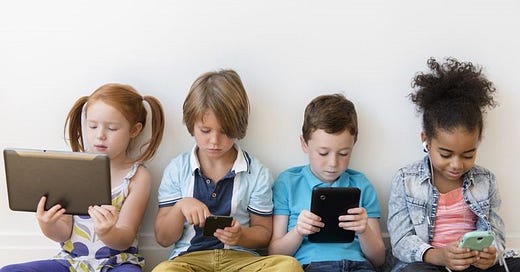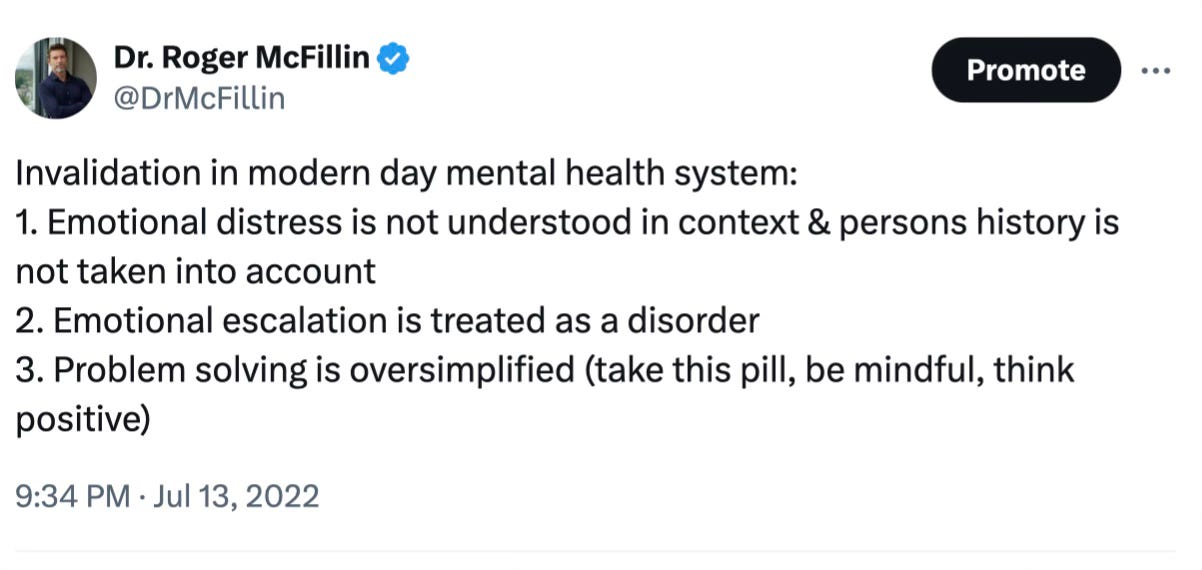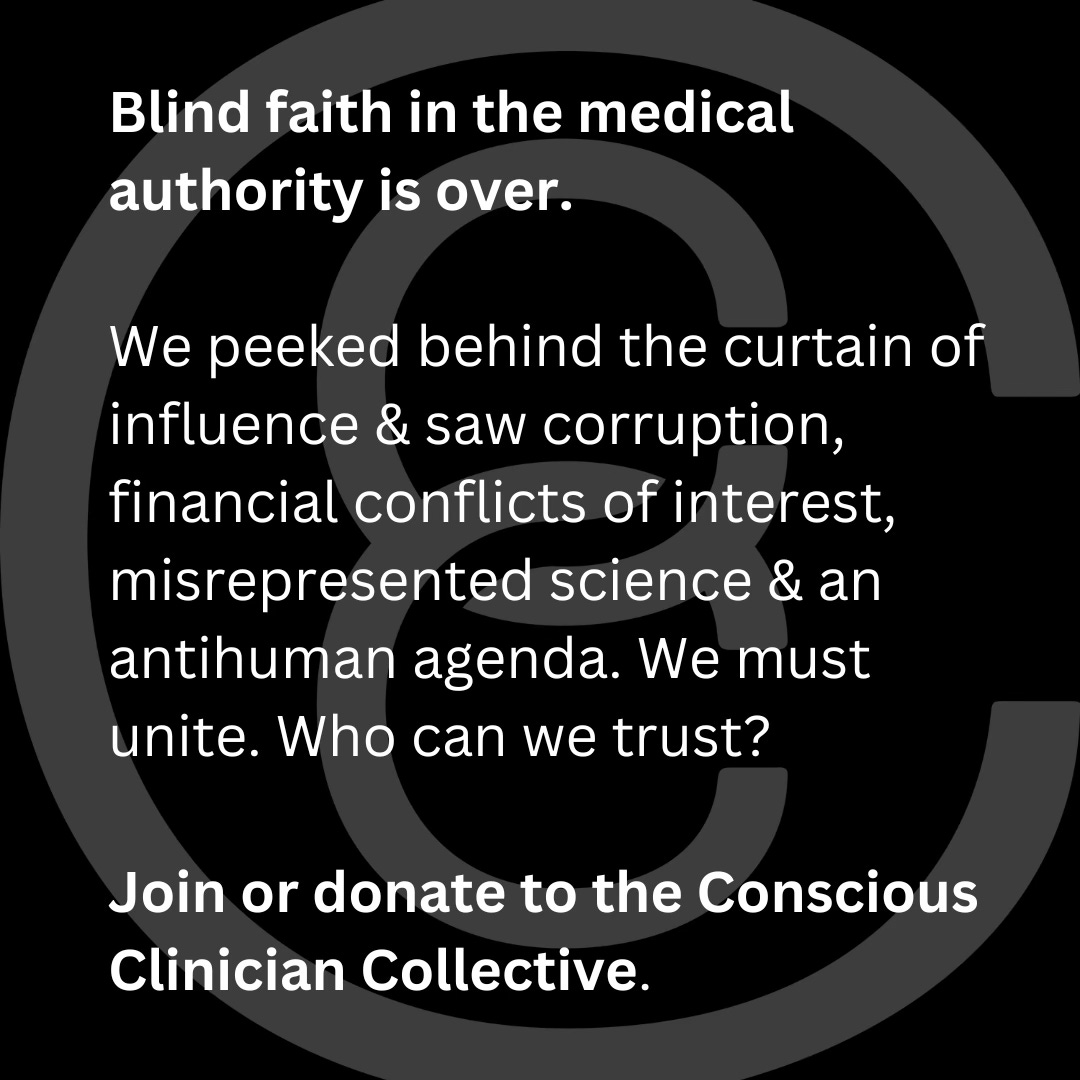The Decline in Empathy and Rise in Psychiatric Drug Use
No pill can fill the void created by a lack of genuine human connection
“When we focus on ourselves, our world contracts as our problems and preoccupations loom large. But when we focus on others, our world expands. Our own problems drift to the periphery of the mind and so seem smaller, and we increase our capacity for connection — or compassionate action.”
— Daniel Goleman
At this stage in my career, I have likely sat before thousands of people enduring profound suffering. Through these encounters, I have gained deep insights into the human condition and the factors that lead to an overwhelming sense of despair, including why someone may become suicidal. One conclusion stands out with unwavering certainty:
Loneliness kills.
I do not mean just being physically isolated and alone. One can feel lonely even in a crowd. Loneliness extends beyond social isolation; it represents a feeling of disconnection from those around us—feeling misunderstood, uncared for, and unloved. Increasingly, people are experiencing a profound sense of social disconnection.
Nearly one in four people worldwide -- which translates into more than a billion people -- feel very or fairly lonely, according to a recent Meta-Gallup survey of more than 140 countries.
Our culture subtly reinforces a narcissistic self-focus through various channels, influencing behaviors and attitudes. Social media platforms, for instance, thrive on self-promotion and validation-seeking behaviors, with users often meticulously curating their online personas to portray an idealized version of themselves. Studies reveal alarming trends, such as the correlation between excessive social media use and narcissistic traits, with one study finding that young adults who frequently used social media scored higher on measures of narcissism.
Additionally, the cult of celebrity perpetuates the notion of self-importance and entitlement, with individuals often aspiring to fame and admiration without considering the impact on others. Reality television further glorifies self-centered behavior, normalizing attention-seeking antics and conflict-driven narratives.
The result? A focus inward on our own needs and desires at the expense of the needs of others.
Personally, I've never met anyone who found true contentment and purpose while solely focused on themselves. Yet, our culture often promotes precisely this mindset—a persistent message of narcissistic self-focus. A world where one is obsessively fixated on their own wants, material possessions, needs, and desires is a miserable one.
The therapy industry, in its quest to promote self-awareness and personal growth, might be inadvertently fostering a culture of narcissistic self-obsession. By encouraging clients to focus excessively on their own feelings and desires, therapy can cultivate a sense of entitlement and self-importance, eroding empathy and deepening social disconnection.
This narcissistic reinforcement can lead to iatrogenic harm, where instead of healing, therapy exacerbates psychological issues, breeding a generation more concerned with their own reflection than with the world around them. This provocative outcome demands a critical reevaluation of therapeutic practices to ensure they nurture not just self-awareness, but also empathy and community.
In the blind pursuit of superficial satisfaction, people forsake the deeper aspects of life—love, empathy, and purpose—crucial for true fulfillment and inner peace. This hollow chase leaves them empty, disconnected, and perpetually unfulfilled. There is a reason over 20% of our population are on psychiatric drugs. We have a cultural problem, and this culture drives people to these drugs. However, the drugs do not solve the underlying issue; they merely introduce new problems.
While the medical establishment offers pills as a solution to alleviate symptoms of mental distress, this approach fails to address the underlying societal issues contributing to feelings of emptiness. No pill can fill the void created by a culture that prioritizes superficial values over genuine human connection and emotional well-being.
Could the decline in empathy and social connection be driving the increase in psychiatric drug use?
A study of American students published in the Personality and Social Psychology Review revealed that levels of empathy in this demographic fell by 48 percent between 1979 and 2009. Who knows where they may be 15 years later?
Possible causes of this growing empathy gap include increasing materialism, evolving parenting methods, and the digital echo chamber. To make matters worse, during this same period students’ self-reported narcissism has reached new heights, according to research by Jean M. Twenge, a psychologist at San Diego State University.
Originating from the Greek word "empatheia" (em, in; pathos, feeling), empathy is the ability to understand and share the feelings of another. Its impact is profound for both the giver and the receiver. For the person receiving empathy, it provides a sense of being understood and valued, which can alleviate feelings of loneliness and despair. Empathy fosters connection and support, which are essential components for emotional resilience and mental health.
The Transformative Healing Power of Empathy
When someone receives empathy, it goes beyond simply understanding their feelings; it validates their struggles and acknowledges that their emotions are normal and understandable given the situation. This validation is crucial because it diminishes judgment of their experiences, fostering an environment of acceptance. When people feel accepted for who they are and what they're going through, it paves the way for resilience. Instead of feeling isolated or condemned for their struggles, they find solace in knowing that others recognize and empathize with their challenges.
Now compare this to going to a medical professional who writes a quick prescription for a psychiatric drug following a symptom checklist. By not taking the time to understand the context of your struggles, this over-simplifies complex emotional issues, reducing them to mere chemical imbalances that a pill can supposedly fix. This not only dismisses the deeper, underlying causes of distress but also overlooks the importance of empathy, connection, and genuine understanding in the healing process. Such a reductionist view can leave individuals feeling unheard and misunderstood, perpetuating the very sense of isolation and inadequacy that contributes to their suffering.
When someone is deprived of empathic attunement and human connection, they tend to turn their attention inward, ruminating on their emotional struggles. This loneliness not only drives despair and suffering but also leads to viewing these experiences as medical conditions requiring treatment. Instead of sharing their struggles with another person who can help normalize their feelings, one may judge their emotional state as a mental illness, believing something is inherently wrong with them.
“I do not ask the wounded person how he feels, I myself become the wounded person.”
— Walt Whitman
Number of close friends had by adults in the United States in 1990 and 2021
Survey Center on American Life; Gallup
The declining number of close friends, coupled with an increasingly digital world, is creating a pervasive sense of loneliness. As social interactions move online, the depth and authenticity of friendships often suffer, replaced by superficial connections and fleeting interactions.
This shift has led to fewer meaningful relationships, leaving individuals feeling isolated despite being constantly "connected." The digital world's emphasis on quantity over quality in social interactions exacerbates this issue, as likes and comments replace genuine conversations and emotional support. Consequently, people find themselves surrounded by digital noise yet profoundly alone, highlighting a growing epidemic of loneliness in our hyper-connected age.
Providing empathy offers profound psychological benefits to the giver, fostering a deeper sense of connection and fulfillment. When we empathize with others, we activate neural pathways associated with positive emotions and social bonding, enhancing our own emotional intelligence and resilience. This act of understanding and sharing in another's feelings not only strengthens interpersonal relationships but also boosts our own well-being by reducing stress and promoting a sense of purpose.
Developing empathy allows the giver to better understand the range of normal human experiences, which helps decrease their self-judgment during similar challenges. By recognizing that others share similar struggles and emotions, empathetic individuals gain perspective on their own difficulties, fostering a sense of common humanity. This awareness not only reduces feelings of isolation but also enhances resilience, as they learn to approach their own challenges with greater compassion and understanding.
Psychiatric Drug Treatment and Invalidation
Rapid prescription of psychiatric drugs in healthcare invalidates personal experiences, framing emotional struggles as disorders rather than normal responses to life's challenges. This trend reflects a societal shift away from human connection, depriving people of the empathy and validation needed for healing. By prioritizing pills over understanding, the healthcare system risks perpetuating a culture of dependency and disconnection, leaving many feeling broken and unheard.
Be Careful What You Judge As “Abnormal”
In today's society, there's a pervasive uncertainty about what constitutes "normal" human experiences, leading many to doubt the validity of their own emotions and struggles. This uncertainty is exacerbated by the widespread use of propaganda techniques that frame common reactions to life's challenges as symptoms of mental illness.
As a result, I believe people are more apt to judge their own experiences as abnormal or invalid, particularly when compared to unrealistic societal standards promoted on social media posts. This insidious narrative not only undermines people's confidence in their own resilience but also perpetuates harmful stigmas around mental health. By pathologizing common human experiences, we risk further isolating and marginalizing those who are simply navigating the complexities of life.
When human emotions are consistently judged and invalidated, it can lead to a profound sense of disempowerment and emotional dysregulation. The pervasive societal expectation to conform to a narrow range of acceptable emotions leaves little room for the complexities of human experience. When someone internalizes this judgment, they may feel ashamed or guilty for experiencing emotions deemed unacceptable or abnormal. Consequently, they may struggle to regulate their emotions effectively, feeling overwhelmed by intense feelings of sadness, anger, or anxiety.
This cycle of judgment and invalidation perpetuates a sense of being out of control, as individuals struggle with their emotions without the validation and support they need to navigate them effectively. Without acknowledgment and acceptance of their emotional experiences, individuals may find themselves trapped in a cycle of emotional turmoil, unable to find stability or peace within themselves.
We can change.
We relinquished our common sense and bowed to authority, be it the school, medical, government, or corporate news media. We became obedient sheep, blindly following the dictates of those in power, and in doing so, paved the way for the exploitation of our minds and bodies by profit-driven interests. Our naive consumer culture nurtured its growth without an ounce of critical thought or resistance.
Now we fight back!









Brilliant post, thank you. We see the effects of this in skyrocketing family estrangement as well as the decline in friendships. Toxic politics and cancelations also make many drawn back from others in fear and suspicion. No pill or therapy session can solve these issues, but pills and therapy make some people very rich. Time to call this boondoggle out for the scam it is. Well done.
I would actually say today we as a society have plenty of empathy. Unfortunately, it happens to be of the one-sided, weaponized, and divorced-from-reason variety these days. "Dark Empathy".